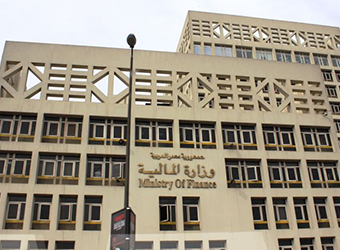Egypt’s government plans to borrow 371 billion Egyptian pounds to finance the deficit of the country’s general budget within the first quarter of the financial year 2017/2018, according to a plan prepared by the Ministry of Finance in coordination with Central Bank of Egypt (CBE) and a number of other banks last week.
This is considered the largest offering ever since the government began borrowing through banks to finance the budget deficit in the early 1990s.
Daily News Egypt was able to obtain the plan of the Ministry of Finance, which reveals the government’s intent to offer treasury bills worth 349.5 billion pounds and treasury bonds worth 21.5 billion pounds during the period from the beginning of July until the end of September 2017.
The CBE, which is carrying out the task on behalf of the government, will issue T-bills and bonds worth 110.75 billion pounds in July, next to another offering worth 151.5 billion pounds in August and other tenders of 108.75 billion pounds in September.
According to the plan prepared by the Ministry of Finance, the offerings will include bills with a maturity period of 91 days worth 84 billion pounds, 182-day bills worth 84.5 billion pounds, 273-day bills worth 90.5 billion pounds, and 364-day bills worth 90.5 billion pounds.
The plan also includes the issuance of three-year bonds due by June 2020 worth 6.25 billion pounds, and other bonds for five years due by May 2022 worth 5.25 billion pounds.
The government will also offer seven-year bonds during the period between July and September due by May 2024 with a value of 4.75 billion pounds and ten-year bonds due by May 2027 worth 5.25 billion pounds.
The government is offering treasury bills and bonds in the market through 15 banks participating in the main dealers system. These banks then re-offer part of these bills and bonds to their customers, from individuals and local and foreign institutions.
The list includes the National Bank of Egypt, Banque Misr, Banque du Caire, Commercial International Bank, Citibank, HSBC Bank-Egypt, Misr Iran Development bank, QNB ALAHLI, Credit Agricole Egypt, Barclays Bank Egypt (Attijariwafa Bank), Arab African International Bank, Egyptian Export Development, Suez Canal Bank, and the Arab Bank. Source: Daily news
Source: Daily news
